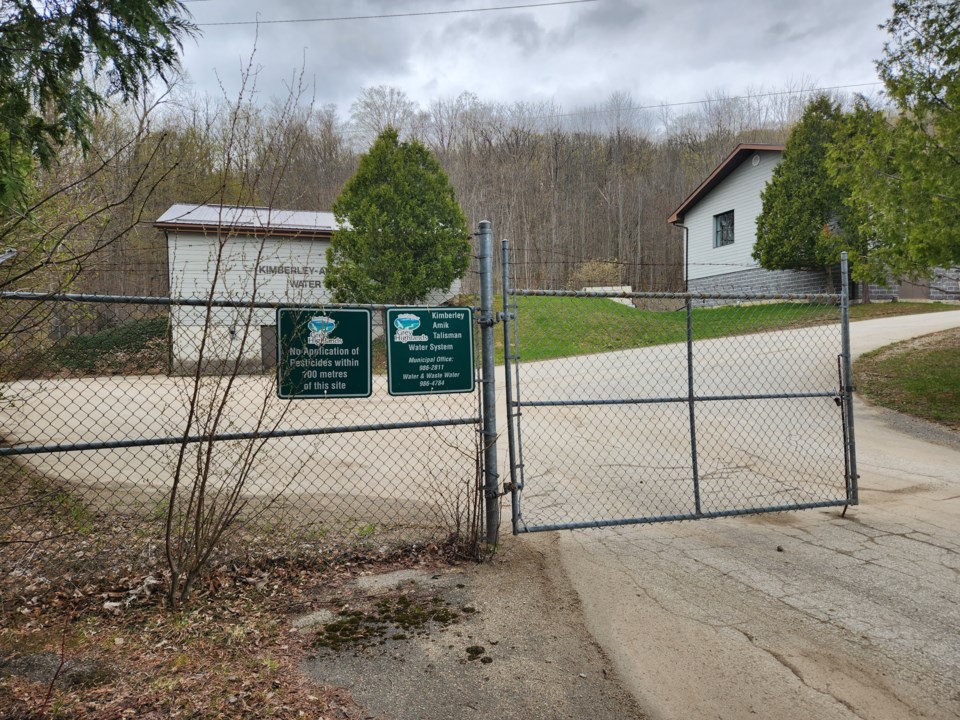The Municipality of Grey Highlands has begun the process to update its master plan for all water and wastewater service across the municipality.
At a special committee of the whole meeting on April 26, Grey Highlands council directed town staff to prepare a request for proposal to hire an engineering firm to review the existing plan in its entirety. The 2023 budget includes $75,000 to complete the update.
This direction came after close to three hours of discussion about the matter, during which divisions emerged on council over how they wanted to proceed.
Grey Highlands originally began work on a master servicing plan in 2012. The plan is an extensive, high-level document that envisions the several urban communities in Grey Highlands – Markdale, Flesherton, Eugenia and Kimberley – eventually being connected to water and sewage services via a loop.
The municipality is preparing to update the document, as it needs to be reviewed before Grey Highlands can complete its next five-year water and wastewater rates study.
The plan is divided into three phases – Markdale, Flesherton and Eugenia – and within each phase there are sub-phases. For example, within the Markdale phase there are sub-phases that examine the possibility of Markdale’s water system eventually being expanded to service the Kimberley/Amik area of the municipality.
The question facing council at the meeting was what servicing concepts and ideas they wanted included in the update to the plan. Staff had divided up each phase and sub-phase for individual approval from council. Ultimately, council voted in favour of including all phases and sub-phases in the update, but not all the decisions were unanimous.
During the course of the debate, several members of council expressed concerns about being asked to approve servicing projects that may not happen for decades, if ever. Councillors also noted that provincial changes to development charges through Bill 23 were going to have a major impact on how the municipality could fund water and sewage service expansions in the future.
Throughout the course of the debate, Shawn Moyer, the municipality's director of environmental services repeatedly advised council that the master servicing plan is a very “high-level” document and that including the various sub-phases in the update was not an approval of those particular projects.
“This is a very ambitious and long-term plan. We’re just trying to lay the framework and move ahead and have a long-term plan to service Grey Highlands,” said Moyer.
At times, divisions emerged between councillors about how to proceed. It took a 4-3 vote (with Mayor Paul McQueen, Deputy Mayor Dane Nielsen and Coun. Paul Allen opposed) to include the Eugenia area in the update. In addition, 4-3 votes (same members opposed) were also required to include the possibility of one day connecting Flesherton to the Markdale water system.
“There is merit to the plan, but the feasibility is hard to match to the merit,” said Nielsen. “I don’t know how feasible the plan is given where we’re heading.”
Coun. Tom Allwood countered by saying Grey Highlands needed to have an overall plan in place should money become available from the higher levels of government.
“Without a plan you don’t get options for funding,” he said.
Noting the high costs anticipated for some of the aspects of the plan to connect various communities, Allen asked if the municipality is required to upgrade/expand its water and sewage capacity or if it could hold the line and let future expansions be “developer focused.”
“Are we required to upgrade or expand these systems to meet developer requirements? Or can we say: ‘that’s all we’re going to do,’ get to our capacity (limits) and stay that size?” Allen asked. “I can’t see the taxpayers of Grey Highlands covering these costs.”
In response, Moyer said town staff could not approve development if water and sewage servicing capacity was used up.
“Staff can’t approve development if there is no capacity there. We would have to limit what growth would come,” he said.
With the committee’s approval of the scope of the update (the committee of the whole decision must be ratified at the next regular council meeting), Grey Highlands staff will now prepare a Request for Proposal for the update of the study and will come back to council in the future with a recommendation on a firm to complete the work.



